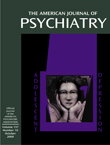Psychiatrists sometimes complain and often feel that they do not receive sufficient professional respect from other medical specialists. Recently, I experienced exactly the opposite problem, and only the help of a psychoanalytic colleague enabled me to understand and cope with the situation.
For many years, I had been taking care of an elderly and very successful businessman and philanthropist who suffered from relatively minor, intermittent episodes of depression. His cognitive abilities were entirely intact. He was very active in business and family affairs and was one of the most charming and kindest people I had ever met. However, at the age of 89, he developed a severe major depressive episode that required intensive therapy.
He was already being treated with a low dose of clonazepam that had been prescribed by another physician. I put him on a regimen of extended-release venlafaxine, and in a few weeks he made an excellent recovery, declaring to me at one visit, “I think we did it!” He returned to all of his usual work, but throughout the summer he had a persistent cough that was diagnosed by his physicians as bronchitis and treated with antibiotics. I was suspicious that bronchitis would last so long in this nonsmoker, particularly in the summer, but deferred to his internist. Finally, in the fall he was diagnosed with congestive heart failure, and later in the year he had a massive myocardial infarction. Despite needing intubation and artificial ventilation, this now 90-year-old man miraculously recovered.
For the first time in his life, however, he began complaining of physical problems. Episodes of severe dyspnea terrified him and his wife. He had another myocardial infarction and underwent several hospitalizations but survived. Each time he had an episode of breathlessness, his cardiologists and internists insisted that there had been no change in his cardiopulmonary status and that the problem must be anxiety. They essentially told me that the problem was entirely in my hands.
I placed him on a regimen of buspirone, which helped his anxiety but did not eliminate the attacks of breath-hunger. I appealed to family and physicians that he looked sick to me and that anxiety did not seem an adequate explanation. He could no longer come to my office because of physical weakness, and I spent much time talking to him and his wife on the telephone. He complained of severe insomnia, and I added to his regimen a low dose of mirtazapine, which improved his sleep but not his dyspnea.
I felt as if all of the other physicians were expecting me to keep him alive, a 90-year-old man with two recent myocardial infarctions who seemed to be constantly gasping for breath. Finally, I spoke to a close friend and colleague, a prominent psychoanalyst. His advice proved to be invaluable: “This man is beloved and needed by everyone, and no one can face the fact that he is going to die soon. The physicians are in denial and looking to you to provide some kind of emotional support to ease everyone’s pain over the impending loss.”
I did what I could to ease this patient’s anxiety and prepare the family for the inevitable. One morning, I got the dreaded anticipated call. He had died peacefully during the night in his sleep. After speaking to his wife, I called his cardiologist. He sounded a bit edgy until I said to him, “You did an unbelievable job. I don’t know how you kept him alive so long, but it meant a lot to him and his family to have the extra time to prepare.” The cardiologist sounded suddenly relaxed and said to me, “You did a great job, too.”
The weight of keeping a man with overwhelming heart disease alive had been placed by cardiologists, pulmonologists, and internists squarely on my shoulders. Suddenly, the psychiatrist was expected to cheat death. I am not sure that this is the kind of respect we are looking for from our medical colleagues, but it turns out that some psychodynamic advice was instrumental in helping us to the best possible outcome.

